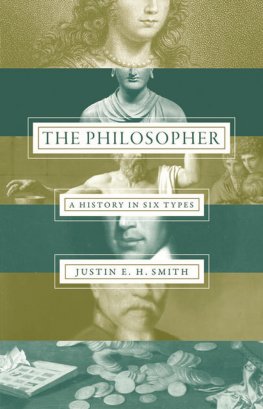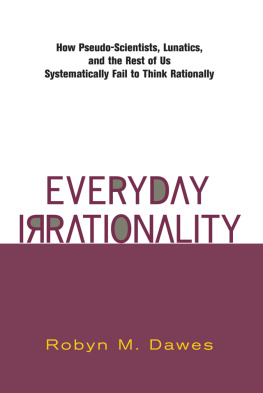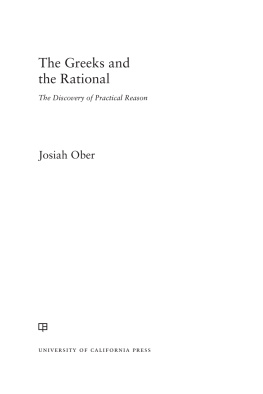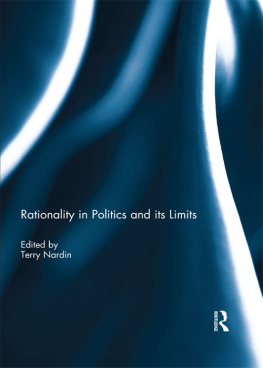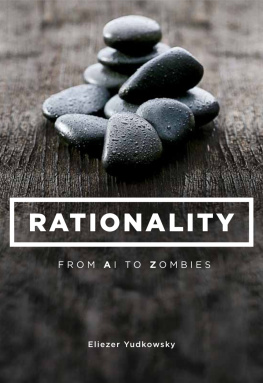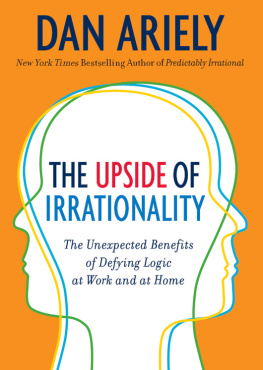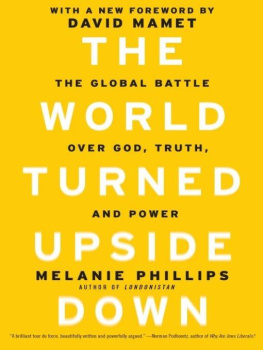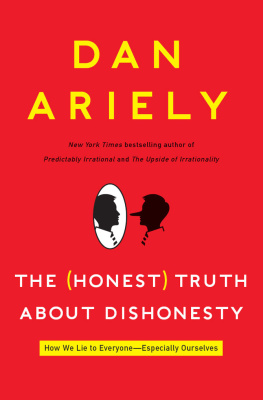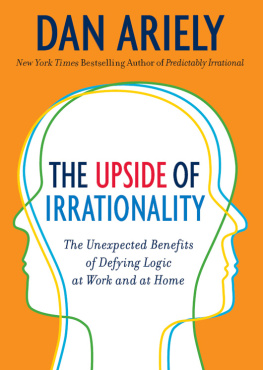
Francisco Goya, The Sleep of Reason Engenders Monsters (1799).
IRRATIONALITY
EASON
USTINMITH
PRINCETON UNIVERSITY PRESS
PRINCETON AND OXFORD
Copyright 2019 by Justin E. H. Smith
Requests for permission to reproduce material from this work should be sent to permissions@press.princeton.edu
Published by Princeton University Press
41 William Street, Princeton, New Jersey 08540
6 Oxford Street, Woodstock, Oxfordshire OX20 1TR
press.princeton.edu
All Rights Reserved
Library of Congress Control Number: 2018953426
ISBN 978-0-691-17867-7
British Library Cataloging-in-Publication Data is available
Editorial: Rob Tempio, Matt Rohal
Production Editorial: Lauren Lepow
Text Design: Leslie Flis
Jacket Design: Amanda Weiss
Production: Jacqueline Poirier
Publicity: Julia Haav, Katie Lewis
This book has been composed in Arno with DIN Pro and DIN 1451 Engschrift display
Printed on acid-free paper.
Printed in the United States of America
10 9 8 7 6 5 4 3 2 1
This book is dedicated to the memory of Kenneth Von Smith (19402016)
For to every philosophy there are certain rear parts, very important parts, and these, like the rear of ones head, are best seen by reflection.
HERMAN MELVILLE, The Confidence-Man ( 1857 )
CONTENTS
PREAMBLE
A Mathematicians Murder
T HE G ULF OF T ARANTO, FIFTH CENTURY BCE . They held his head under the sea until the life-breath ebbed out of him. The four of them had been chosen by the leader himself, from among the least learned of the sect, brawny men whose lack of comprehension in mathematics was compensated by their zeal for enforcing loyalty. They were instructed to wait for their poor victim to go to the side of the boat to pull up the nets, and to not let up until his limbs had ceased to twitch. He never saw what was coming, passed straight from eager thoughts of the pickerel and mullet about to appear as he heaved the wet ropes onboard, to horrid vision of death.
One does not betray the secrets of the sect, least of all when these secrets undermine the foundations upon which the sect is built. But this is what Hippasus had done. Word got out, among those who do not wear the robes, among those who laugh at the Pythagoreans, about a little problem with the way things, so to speak, add up. The world cannot be built up from numbers, from proportions, from ratiofrom reasonbecause, they had begun to say, mathematics is rotten at its core. If the world is built up from numbers, then it must be as irrational as they are. This is what the sect had lately discovered from the diagonal of a square: it is incommensurable with the squares side. If you try to calculate it, you will end up with a decimal series that has no natural end. How can that be? If there is no determinate fact about what that number is, how can it possibly be the number that characterizes a particular thing in the world? No, this is wrong. It is irrational. Whoever leaks it must surely die.

It is from Iamblichus that we initially learn a version of this legend: the drowning of Hippasus of Metapontum, a Pythagorean philosopher who flourished, for a while, a century or so before Socrates. The first recorder of this legend, writing seven centuries later, tells us that Hippasus was thrown into the sea not by his fellow sect members, but by the gods, and he seems to believe that it was not for the crime of divulging the nature of irrationality, but rather for teaching to nonsect members the less controversial art of inscribing a dodecahedron in a sphere. It almost certainly never happened, but like any good legend it does not need to have happened in fact in order to convey its profound lesson.
The mythological parallels for this story are many, but it is hard not to think of it as a sort of philosophical analogue to the opening scene of Stanley Kubricks 1969 film 2001: A Space Odyssey , the moment when a protohuman creature discovers its own power to use a bone as a weapon, first to kill a lowly tapir, and then to dominate or kill its fellow hominid rivals. Scientific discoveries, technological innovations, cognitive breakthroughs: all mark a step forward for human rationality, even if as a rule they also serve as an engine of new violence, providing the means for new forms of it that the world had not previously known. Rationality and brutality, then, are the twin poles of human history, and each new innovationweapons from bones, the control of fire, writing, gunpowder, the internetadds to the stockpiles of each. In both of the essentially fictional cases we have evoked, that of the hominids and that of the Greeks, something in the protagonist clicks, and then he is, or we are, doomed. This clicking is sometimes represented in myth, as in the case of Pandora, as an opening of an external box, but it would be more accurate to imagine it as an internal event, an epiphany, a breaking-through, after which nothing is the same.
New power carries with it new danger, and new occasions for violence. Such examples could easily be multiplied from the history of science and technology, of marvelous theoretical discoveries that are at the same time the beginnings of new chapters of human destructiveness. This is the tragic arc of science, discerned by James Merrill in his 1982 poem The Changing Light at Sandover , when he writes of the powers at the heart of matter that we have hacked through thorns to kiss awake, and that
Will open baleful, sweeping eyes, draw breath
And speak new formulae of megadeath.
This last term, which would inspire the name of a well-known thrash-metal band, is in fact a unit of measurement, designating one million human deaths by nuclear explosion. The possibility of doing real reckoning with such units, Merrill understands, cannot be separated from our desire to probe into nature and to understand, by reason, its workings. Tool use, geometry, theoretical physics: all seem to be alike in that they have brought out the best and the worst in us. Correlatively, a sober assessment of human history suggests neither progress nor degeneration, but an eternally fixed balance of problem solving and problem creating. Occasions for the employment of the most exalted faculties of the human mind have also been occasions for the flexing of muscle and, when this is not enough, the raining down of blows.
The case of Hippasus, on Pappuss telling, is in some respects just another in this long and repetitive history, yet there is also something special about it that sets it apart. The discoveries that gave us nuclear weapons did not reveal anything irrational about how the world works; we already knew that the world consists of many things that are too hot or too cold, too corrosive or cutting, to be compatible with human life. These discoveries only afforded us more opportunities to be vicious to one another, and at a greater scale. The discovery of irrational numbers is more poignant, as it involves a group of people, the Pythagoreans, dedicated to a sort of worship of rationality as exemplified in mathematics, who study mathematics precisely as an expression of this worship, and who unwittingly uncover the irrationality at the heart of the very thing they took as their object of worship, unleashing irrational violence on one of their own as a result. This sequence of steps takes us out of the history of science and technology narrowly conceived, and into a social and political history whose chapters are often characterized by just this sort of dialectical motion: from commitment to an ideal, to the discovery within the movement of an ineradicable strain of something antithetical to that ideal, to, finally, descent into that opposite thing.
Next page

